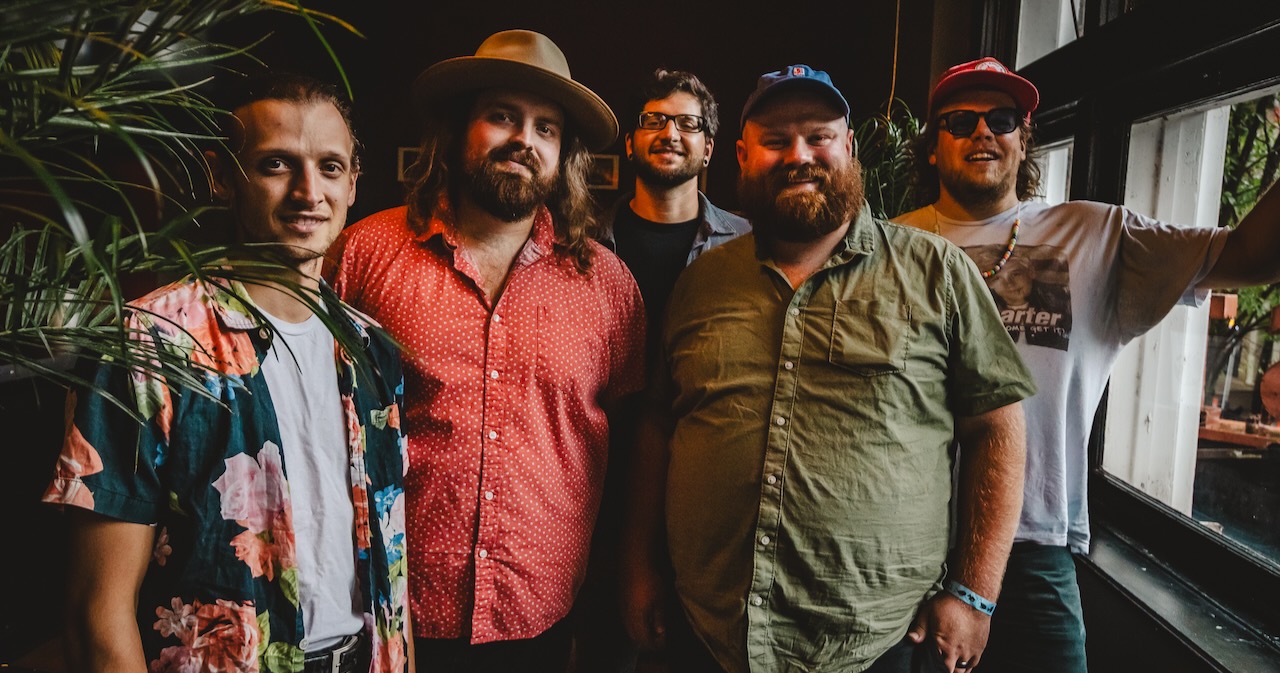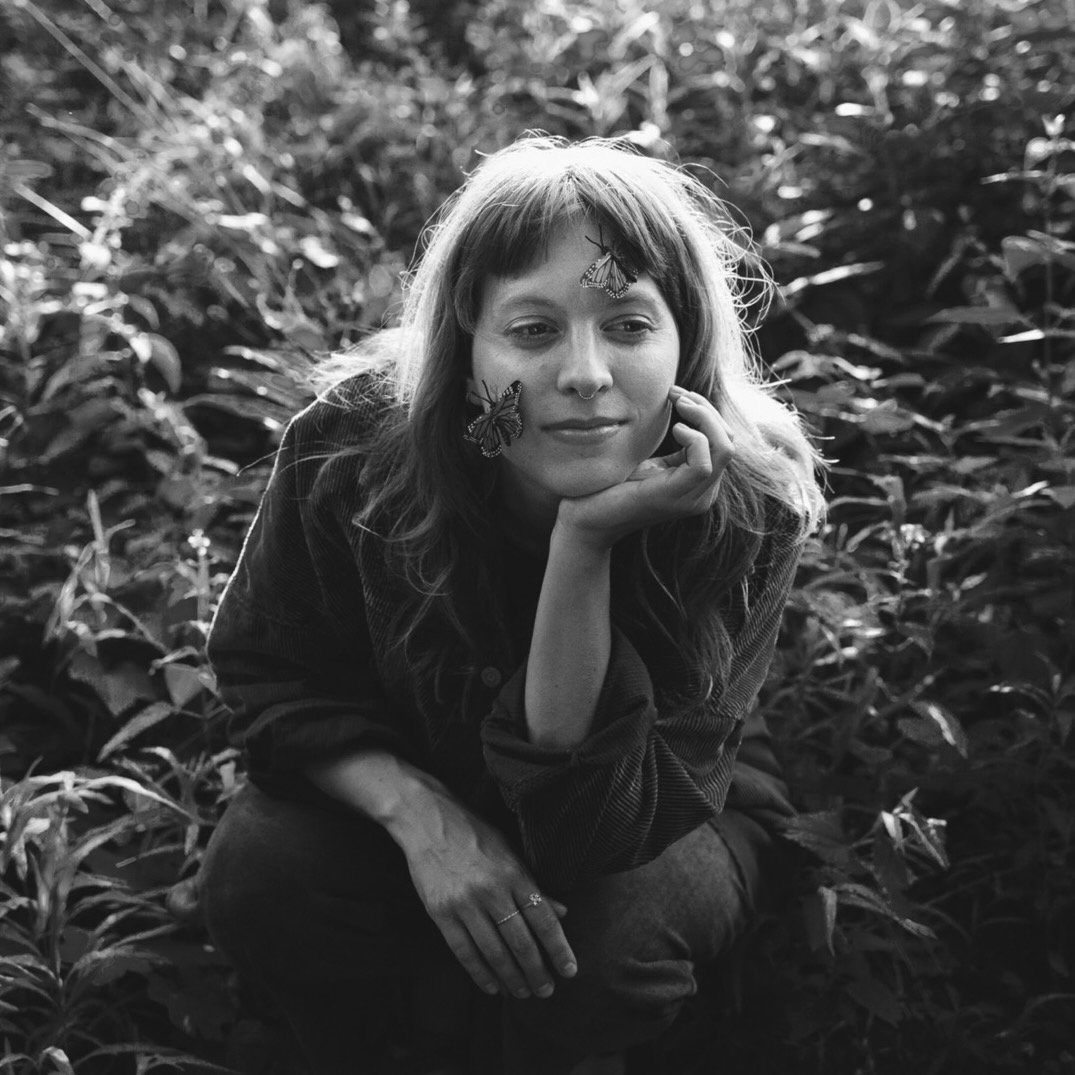Some of more commonly associated marvels of the Badger State are salty cheese curds, verdant farmsteads, and acrimoniously freezing winters – as well as a whole bunch of simple roadside attractions and signature small-town revelries. It’s the adopted home of Harry Houdini and John Muir and the birthplace of a memorable host of charming eccentrics, including Orson Welles and Thornton Wilder.
Soren Staff, lead vocalist of Wisconsin’s homegrown and free-range Them Coulee Boys, was born in the rolling hills of the country. He has spent ample time explaining the sort of commonsensical people and curiously provincial patois that make the state endearing.
“A coulee is a valley with a river in it,” said Staff. “We’ve had to clear up that name every single step of the way.”
Staff hails from just outside of Taylor, Wisconsin, population 400, and he attended high school in Milwaukee. He and his four bandmates now call Eau Claire home, a small city typifying and sharing their Midwest values and sensibilities: an industrious, approachable, and self-effacing kind of existence.
“People in Eau Claire care about art and music and there is a neighborly goodness to life here,” said Staff. “Wisconsin is not a state that people associate with a lot of luminaries coming from, but I like to think we are doing our part, pulling our weight.”
Them Coulee Boys – who are readying a brand new album, their fifth, No Fun in the Chrysalis (set for release February 28 via Some Fun Records), produced by Grammy winner Brian Joseph – are a bunch of small town Wisconsinites who have found a common place to live, where locals have embraced them with joviality and applause. Banjo player Beau Janke comes from Trempealeau, a beautiful village on the Mississippi River. Soren and his brother, Jens Staff, a mandolin player, come from the Taylor area. Bass player Neil Krause was born and raised in Chippewa Falls. Drummer Stas Hable is a native of Eau Claire and a graduate of the University of Wisconsin-Eau Claire’s music studies program.
Staff and Janke met at Camp Chetek, a Christian camping ministry in northwestern Wisconsin. The two camp counselors played music all day long, from the time of morning prayer, through the daily worship services in the afternoon, to evenings spent entertaining teenagers around the campfire. The following year, Jens joined Soren and Beau.
“That’s where we cut our teeth and cultivated our chemistry with each other,” said Soren. “We met at that camp and it has blossomed into a whole career.”
A few years later, Them Coulee Boys formed and the forceful folk-Americana band has lasted 11 years, which could be lauded as an eternity in the seemingly short-lived music business. Indeed, the music of Them Coulee Boys is grounded in their friendship and rooted in their desire to express a walloping good time. Such closeness, conviviality, and simple gratitude elevate the music to higher stages.
“We care about each other,” said Staff. “I trust and love these guys, personally and musically. Still, it took me time to trust in bringing an unfinished song to the others and to realize that their influences and skills and personalities will serve the song best.”
Staff was exposed to a wide variety of music in his youth, from classic rock to ’70s disco and pop, but it was the unaffected, everyday-man songs that he heard on COW97 (a Western Wisconsin country channel and his grandfather’s favorite) that created the largest impression. He was struck by the simple yet deep songs of Roger Miller and Tom T. Hall and songwriting prowess of granite and stone immortals such as Johnny Cash and Merle Haggard.
Staff, who works part-time at a local print shop, has a fondness for the contemplative capacities of the singer-songwriter experience. With mirth in his eyes, he still attends open mic night at The Plus in Eau Claire on Tuesdays, which he has done for about 10 years. But one of the most special things about Them Coulee Boys is that within the group there exists a worship of many varieties of music. Janke was raised on the thunder of Led Zeppelin, which pushes the band’s sound to an altogether different space, allowing them to turn it up to the heights of exuberance, to blaze the woods on fire.
“Finding the balance between introspective songwriting and the energy, bombast, and power of a rock and roll band, there is a good tension there. Striking a balance in that tension carves out a sound that we want to make.”
Them Coulee Boys started in a basement and, quite honestly, they never expected to be out of that basement. They played their first gig at a ski lodge in northern Wisconsin, the only ones seated and listening their parents and girlfriends. Then they signed up for the 10 p.m. to 2 a.m. spell at as many bars in the state as possible. Once, the guys played four hours of music in four separate bars in four small towns, for four nights in a row. The total haul was $1,000, split between four musicians. At that time, Staff considered their take a grand success. In 2016, the group started taking its energetic, impulsive brand of Wisconsin-Americana outside the state in earnest.
Virtually all of the group’s songs begin with lyrics, melodies, and chord structures that first arise in Staff’s head. He comes up with something rough and ready, presents it to the others, and they turn it into something utilizable, a playable song.
“My biggest job as a songwriter is to be a gatherer and be open to ideas,” said Staff. “I let images run through my head throughout the day, waiting for the words that make me want to keep writing. I’m seeking a line to build off of. If it is a good line it will stick around. If you are looking all of the time, it becomes easier to draw from that when you sit down to write something.”
Staff is pleased with the results of No Fun in the Chrysalis, the band’s fifth album. Rambunctious, playful, and wonderfully inspired, the recording is submerged in the mystery of transformation; the relentless blitz of change the most dominant theme of the songs.
“There has been massive change in my life and the other guys,” said Staff. “Kids. Marriage. Switching jobs. There is tension in change and eventually there has to be acceptance. … The first song, change is a question. But by the last song, there is an answer to it.”
The album reflects a few of those inner and interpersonal changes within the band, an encapsulation of their growth spurts and plodding development.
“Musically, we’ve embraced that we are not a string band,” Staff continued. “We have drums, electric instruments, banjos, mandolins. We’ve pushed our sound forward into different spaces, but we’ve also accepted that we come from a string band background, and could harken back to older records. There are contemplative jams. But there is also a stomping song about making out.”
No Fun in the Chrysalis reveals not only a tumultuous, change-filled time in the individual and collective lives of the musicians, but it serves as a lively expression from a band somewhere in the middle phase of their journey.
“On one hand, we are still trying to prove ourselves,” said Staff. “Though on the other hand, we have a decade worth of experience, and it shows. We’ve come a long way from the basement and hope to have many miles ahead.”
Photo Credit: Kenzie Trezise

